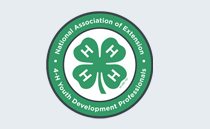Aims & Scope
Focus and Scope: JYD fills a unique and critical niche in the youth development arena to bridge applied research and practice. JYD addresses issues and features studies and practice efforts that have implications for those working with and on behalf of young people in youth-serving organizations and the intermediaries that support them.
Sections: JYD accepts manuscripts in categories that include Feature Articles; Program and Practice Articles; Evaluation and Research Articles; Commentaries and Essays, and Book and Resource Reviews.
---Feature Articles provide synthesis, analysis, and potentially new findings on important topics, issues and trends - particularly those that bridge between and have implications for practice, research and policy. The purpose is to consolidate or advance what is known and help shape the field of youth development. These peer-reviewed articles generally either 1) look across studies and programs on a broad issue with implications for improving practice, focusing applied research, and/or informing policy (e.g., meta-analyses, theoretical integrations); or 2) involve major applied research that tackles similarly important issues in the field (i.e., research topics that transcend a single program and broadly inform principles of youth development). Neither type are typically based on a single evaluation or research study unless very complex and multi-faceted. 4,000-7,000 words
---Program and Practice Articles provide evidence-informed descriptions of programs, practices, trainings and policies with implications for application or replication. The purpose is to inform and improve practice. These peer-reviewed articles summarize an innovative program, practice or professional development effort with demonstrated results to inform practice. They can include research or evaluation results, but are not simply reporting program evaluation findings and must provide sufficient descriptions of the practice or program. 2,000-4,000 words
---Evaluation and Research Articles either provide new findings from applied research and evaluation with implications for practice or describe new methods or measures helpful to applied research or the continuous improvement of practice. The purpose is to share new knowledge and research or evaluation approaches. These peer-reviewed articles summarize a significant study related to youth development practice, the profession, or the field. They should not typically be findings from a single program evaluation unless presenting and discussing broader implications for the field. Articles of this type should clearly state evaluation/research implications for youth development practice. 2,000-4,000 words
--Commentaries and Essays This submission category welcomes insightful commentaries and thought-provoking essays that offer critical perspectives, innovative ideas, and reflections on current issues, practices, and research in youth development. Authors are encouraged to explore diverse viewpoints and opinions and engage with emerging trends, challenges, and opportunities, providing valuable insights and stimulating dialogue within the field. 1,000-2,000 words
--Book and Resource Review This submission category provides a platform for scholars, practitioners, educators, and researchers to critically review and discuss books, curricula, tools, fact-sheets, frameworks, and other resources relevant to youth development. Reviews should offer insights into the content, relevance, strengths, and limitations of the materials, as well as their potential impact on practice, research, and policy. 1,000-2000 words



